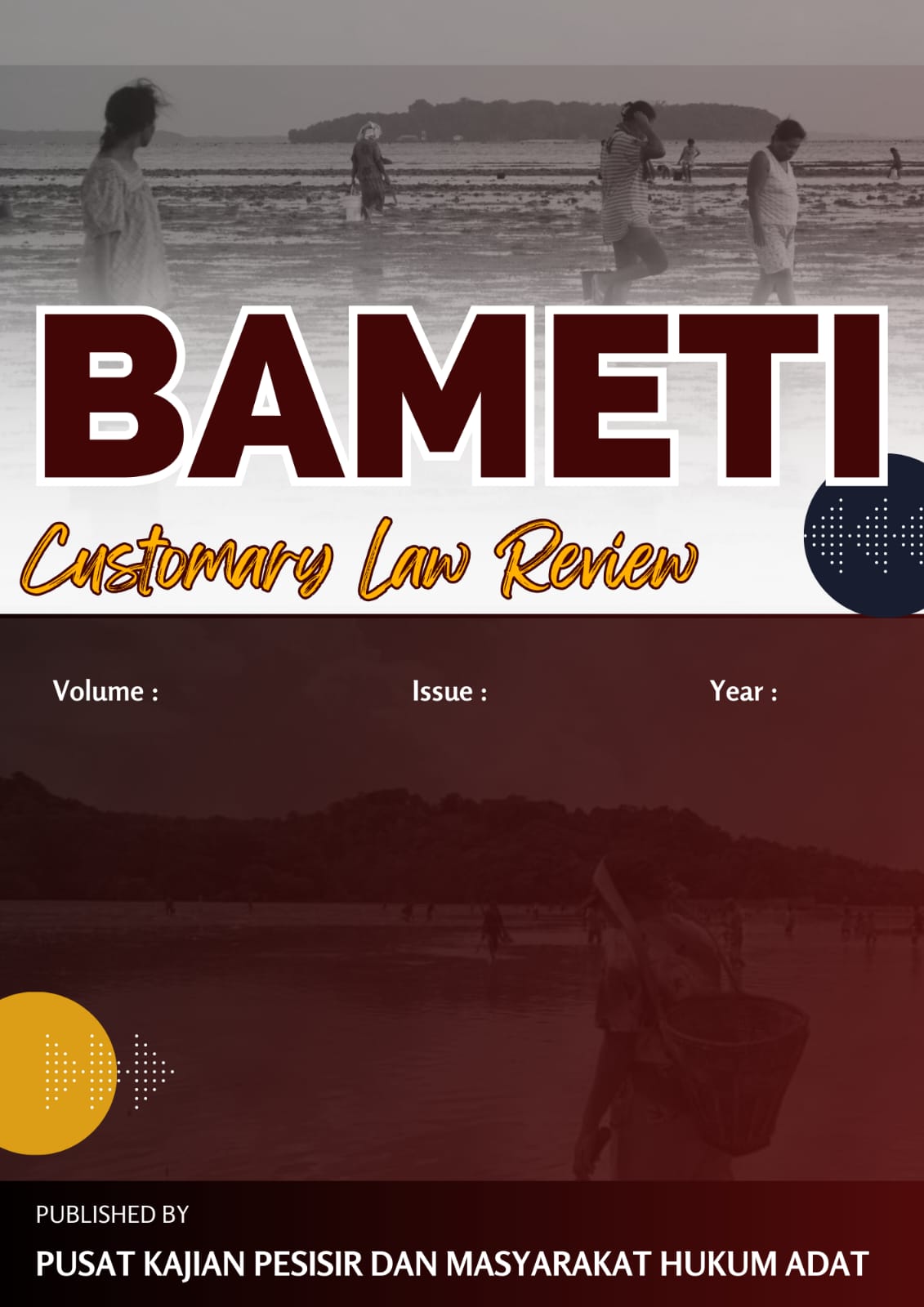Uang Panai’ Sebagai Salah Satu Syarat Perkawinan Pada Suku Bugis Makassar
Abstract
Uang Panai' is an amount of money that must be given by the prospective husband to the family of the prospective wife which is used as expenses for the wedding reception. The tradition of giving Uang Panai' is one of the concerns of many people outside the Makassar Bugis tribe because it is not uncommon for the bride's family to ask for fantastic amounts of Uang Panai. This sometimes burdens the prospective groom and his family, causing the prospective groom to withdraw and cancel his intention to marry the prospective bride. This is what makes the writer feel interested in discussing Uang Panai' as a condition for marriage in the Makassar Bugis tribe. The research method used is normative legal research. The main subject of the study is law which is conceptualized as a norm or rule that applies in society and becomes a reference for everyone's behavior. Results of the Research is uang Panai' is not a legal condition for marriage, but only an additional condition that is customary for the Bugis people. So that if the bridegroom does not give Uang Panai', the marriage can still take place and remains valid religiously and legally
Downloads
References
Mutakhirani Mustafa, Pergeseran Makna Pada Nilai Sosial Uang Panai’ Dalam Perspektif Budaya Siri’, Jurnal Yaqzhan, Vol. 6, No. 2, Desember 2020.
Reski Daeng, S. R, Tradisi Uang Panai Sebagai Budaya Bugis, Holistik, 2019.
Rinaldi. Et.al, Uang Panai Sebagai Harga Diri Perempuan Suku Bugis Bone (Antara Tradisi dan Gengsi), Equilibrium : Jurnal Pendidikan Vol. X. Issu 3. September-Des 2022.
Copyright (c) 2023 Dyah Auliah Rachma Ruslan

This work is licensed under a Creative Commons Attribution-NonCommercial 4.0 International License.
Authors who publish their manuscripts in this Journal agree to the following conditions:
- The copyright in each article belongs to the author, as well as the right to patent.
- Authors are able to enter into separate, additional contractual arrangements for the non-exclusive distribution of the journal's published version of the work (e.g., post it to an institutional repository or publish it in a book), with an acknowledgment of its initial publication in this journal.
- Authors are permitted and encouraged to post their work online (e.g., in institutional repositories or on their website) prior to and during the submission process, as it can lead to productive exchanges, as well as earlier and greater citation of published work.
- Authors have the right to self-archiving of the article (Author Self-Archiving Policy)













